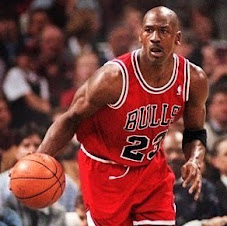 By Jim Halley, USA Today
By Jim Halley, USA Today03.11.10
When Natalie Randolph is introduced Friday morning as head football coach at Coolidge High in Washington, D.C., it will be a big deal for female coaches across the country.
There are roughly 27,000 high schools in the USA, and though record-keeping at that level is spotty, Bruce Howard of the National Federation of State High School Associations said he couldn't remember another woman becoming head coach of a boys football team.
"I can't tell you there's not another one out there, but I haven't heard of one," said Howard, who has been with the national federation for 25 years.
Because football employs more coaches, including assistants, than other high school sports, Randolph's hiring could open the door for more women to coach football and other boys sports.
"I'd say it is a big deal, particularly since it is football," said Pamela Noakes, executive director of the National Association for Girls and Women in Sport. "In colleges, only 2% to 3% of the coaches of men's teams are women, and most of those are coaches of already coed teams like swimming or cross country, the usual ways that women break into the ranks of coaching men."
While Randolph is a pioneer, the numbers of women coaching football are growing at the youth level. Steve Alic, a spokesman for USA Football, the national governing body for youth football, said 4.7% of its coaches are female.
"Girls and women — along with their fathers, sons and brothers — now have clear evidence that the gridiron ceiling can be broken," said Karen Durkin, chief executive officer of the Women's Sports Foundation. "Natalie's hiring will serve as a much-needed catalyst for women in leadership positions across all sports."
Randolph, 29, was an assistant coach at H.D. Woodson in Washington in 2006 and 2007. She played six seasons as a receiver and on special teams with the D.C. Divas of the National Women's Football Association.
She was a track athlete (sprints and hurdles) at the University of Virginia and began her coaching career in 2004 with Track Express Track Club in Largo, Md. She teaches environmental science at Coolidge.
"I'm excited for the opportunity to coach these young men, and I'm flattered at the outpouring of support and encouragement from the D.C. football and academic community," Randolph said in a news release. "I know how important high school football is to these young men, the parents, the school, and the Coolidge community. I plan on taking this opportunity and running with it."
When she was assistant head coach at H.D. Woodson, she showed she belonged, Woodson head coach Greg Fuller said.
"Honestly, I don't think she'll have problems with (the players or the parents), because she knows the game and I think she proved that point," Fuller said. "When she worked with me at Woodson two years ago, she had the utmost respect. She got their attention immediately when she showed the drills she had done with the Divas."
Coolidge begins spring workouts in May with summer practices starting Aug. 8. Randolph will be assisted by Bob Headen, who retired from Woodson after winning eight D.C. Interscholastic Athletic Association football titles in 25 years of coaching. Randolph takes over a program that was 39-36 the past seven seasons, including four playoff appearances.








.jpg)





